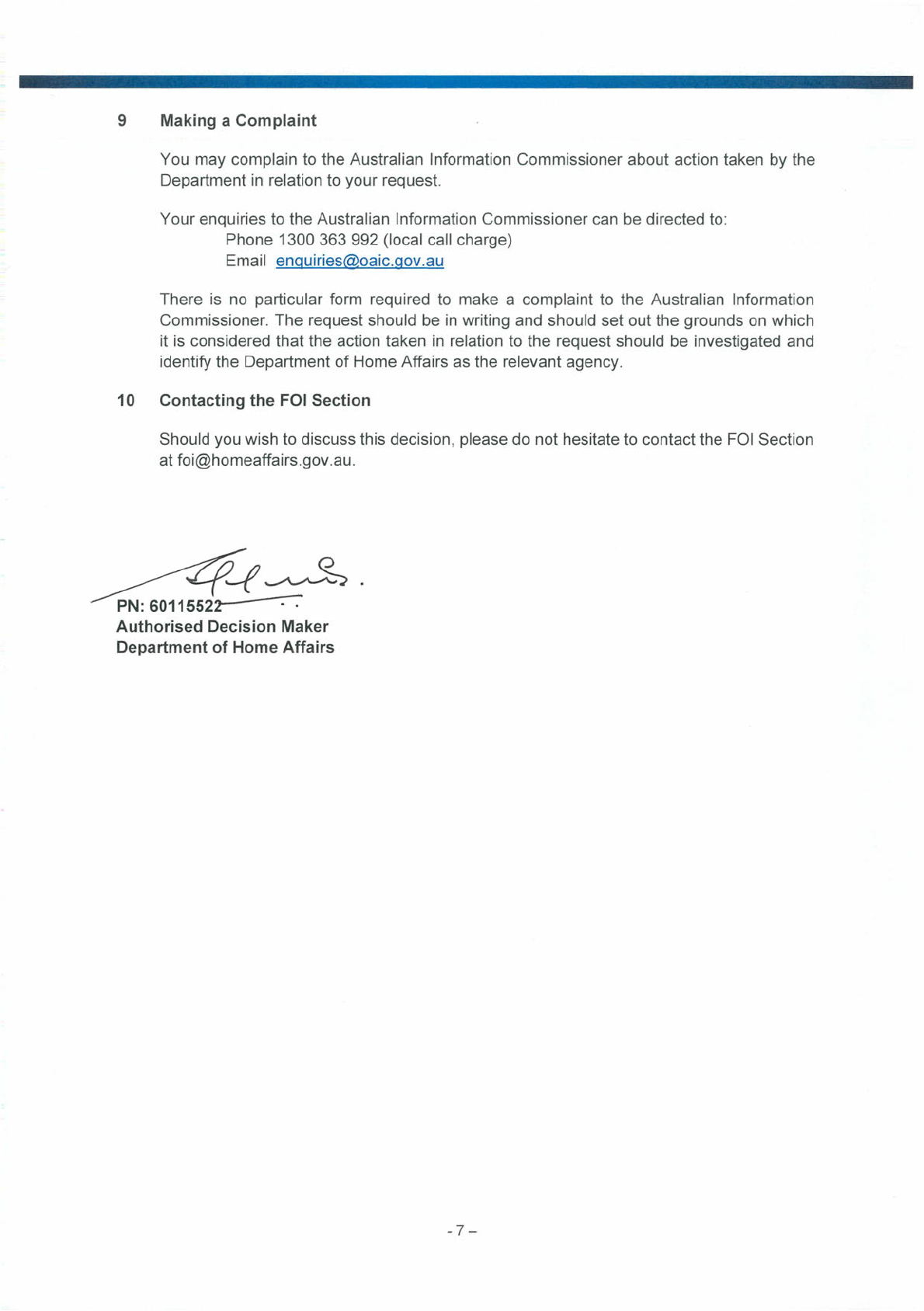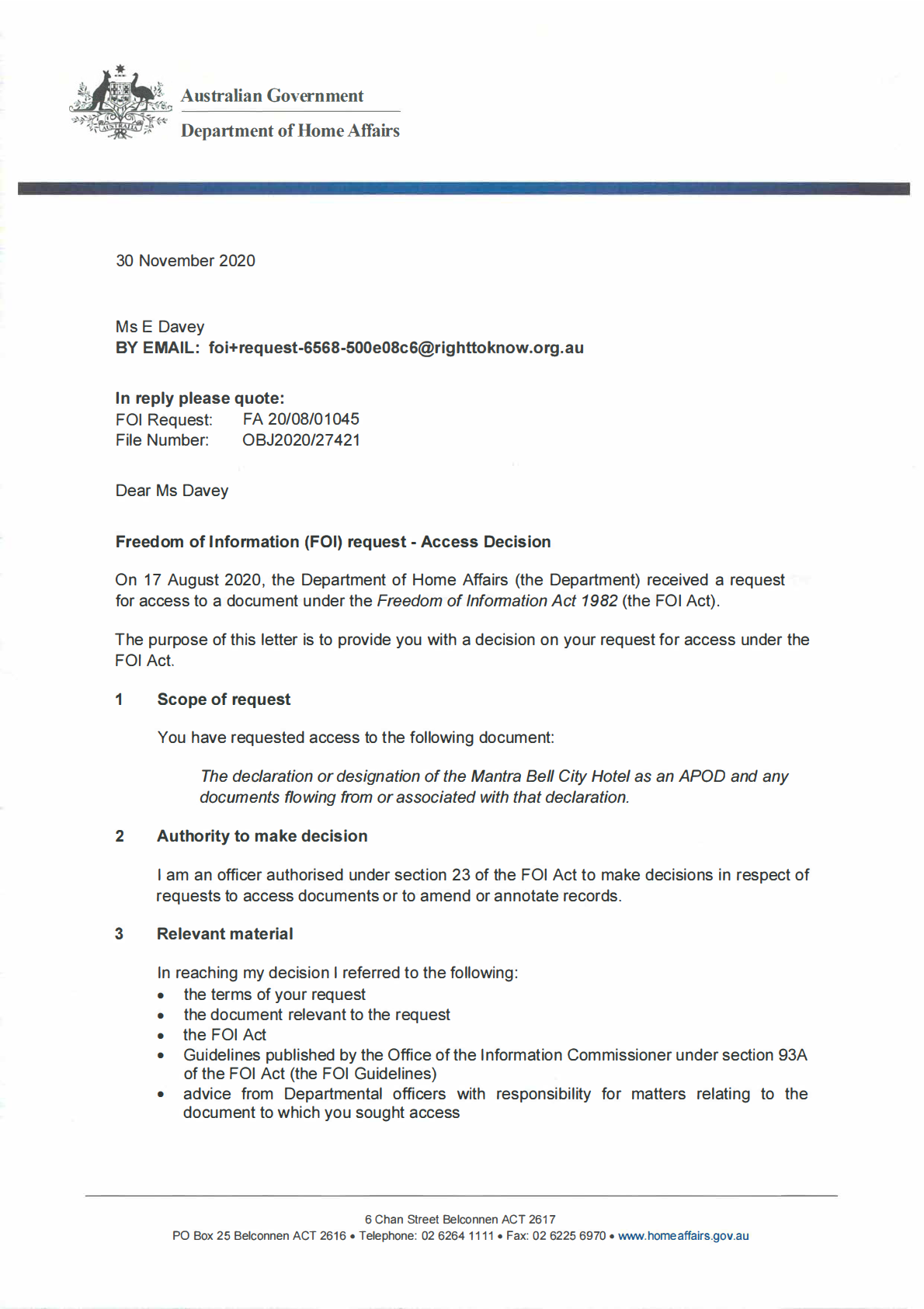
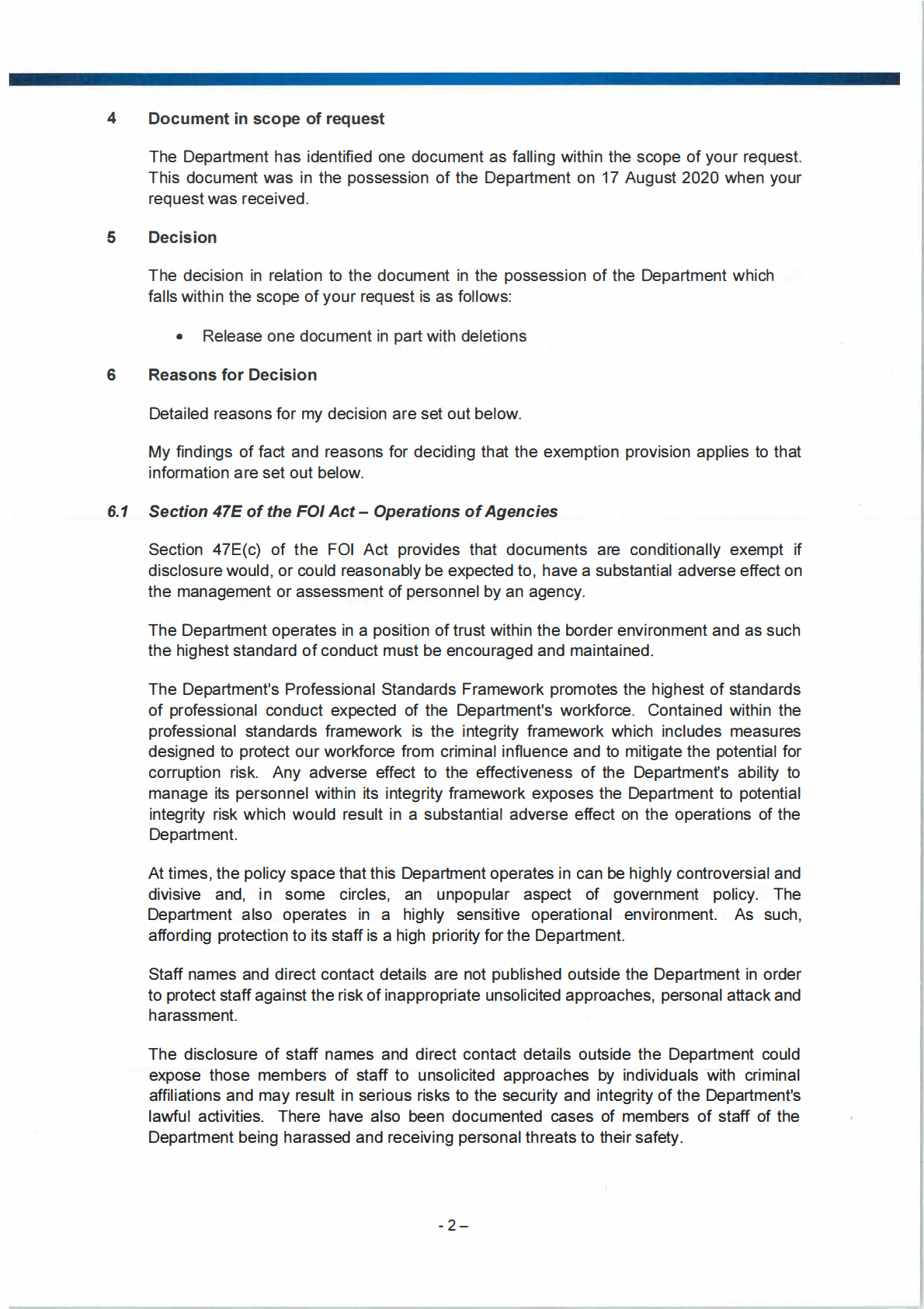
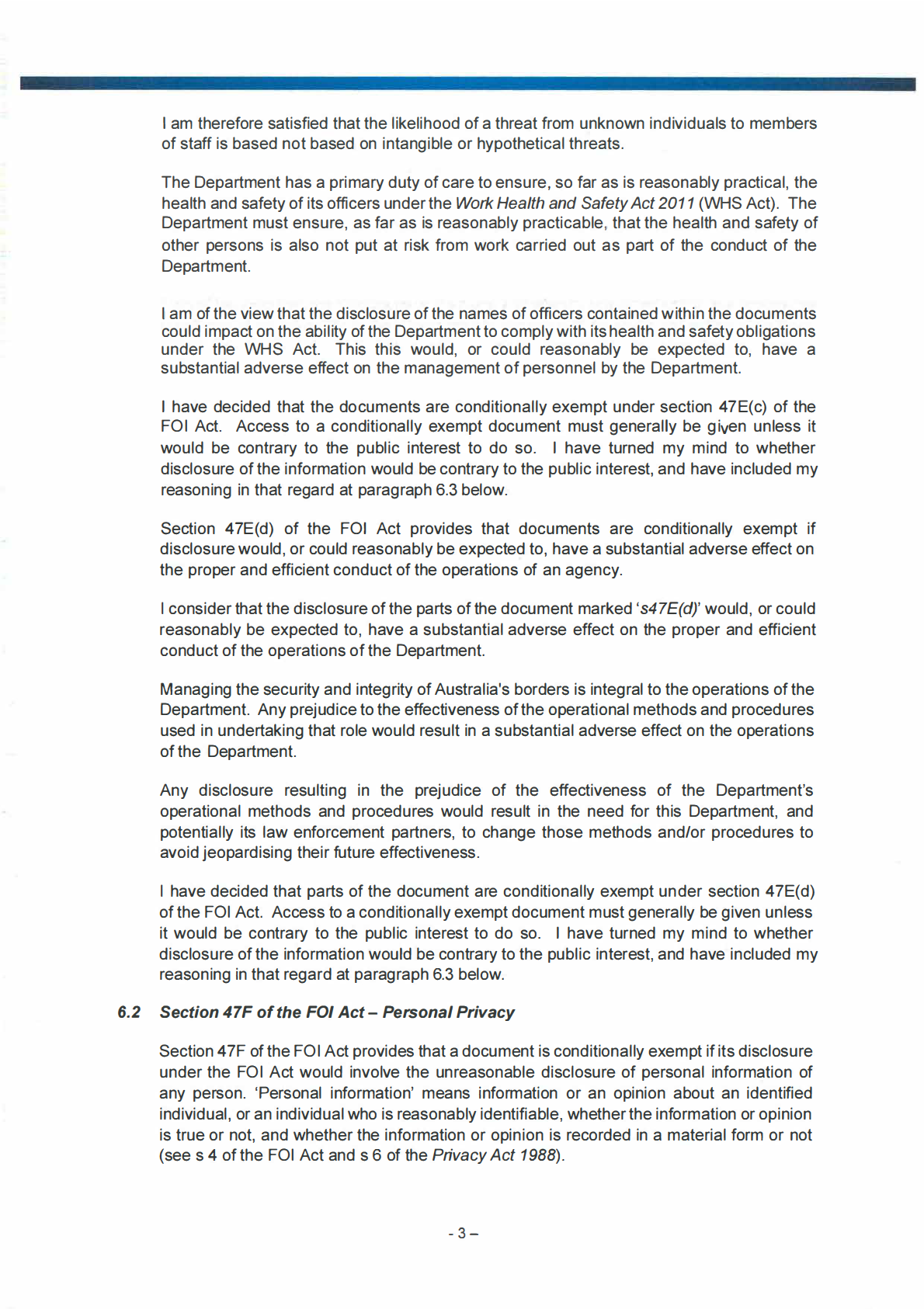
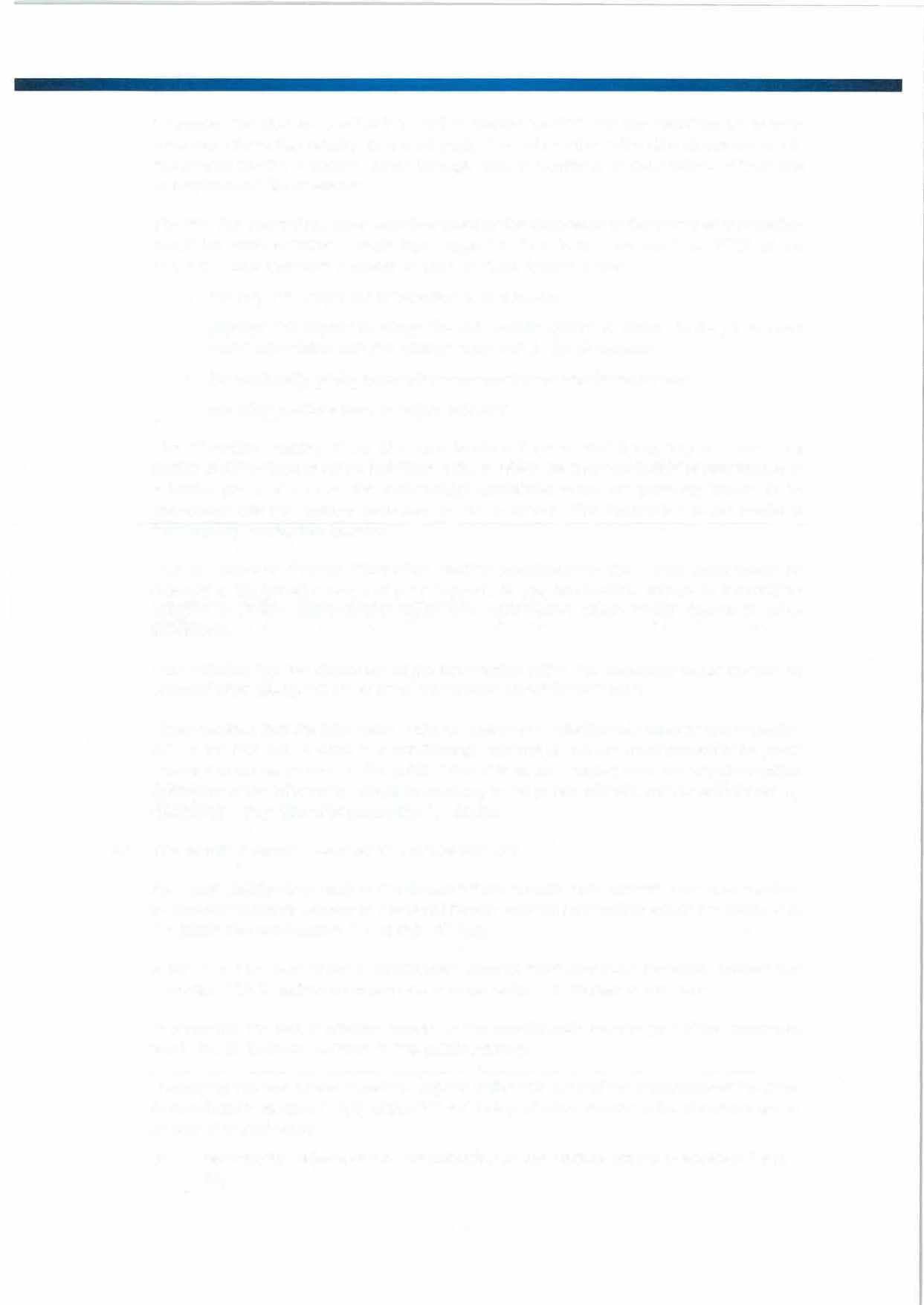
I consider that disclosure of the information marked 's4 7F' in the document would disclose
personal information relating to a third party. The information within the document would
reasonably identify a person, either through names, positions or descriptions of their role
or employment circumstance.
The FOi Act states that, when deciding whether the disclosure of the personal information
would be 'unreasonable', I must have regard to four factors set out in s.47F(2) of the
FOi Act. I have therefore considered each of these factors below:
•
the extent to which the information is well known;
•
whether the person to whom the information relates is known to be (or to have
been) associated with the matters dealt with in the document;
•
the availability of the information from publicly available resources;
•
any other matters that I consider relevant.
The information relating to the third party is not well known and would only be known to a
limited group of people with a business need to know. As this information is only known to
a limited group of people, the individual(s) concerned is/are not generally known to be
associated with the matters discussed in the document. This information is not available
from publicly accessible sources.
I do not consider that the information relating specifically to the a third party would be
relevant to the broader scope of your request, as you are seeking access to information
relevant to APOD designations rather than information which wholly relates to other
individuals.
I am satisfied that the disclosure of the information within the document would involve an
unreasonable disclosure of personal information about an individual.
I have decided that the information referred to above is conditionally exempt under section
47F of the FOi Act. Access to a conditionally exempt document must generally be given
unless it would be contrary to the public interest to do so. I have turned my mind to whether
disclosure of the information would be contrary to the public interest, and have included my
reasoning in that regard at paragraph 6.3 below.
6.3 The public interest- section 11A of the FOi Act
As I have decided that parts of the document are conditionally exempt, I am now required
to consider whether access to the conditionally exempt information would be contrary to
the public interest (section 11A of the FOi Act).
A part of a document which is conditionally exempt must also meet the public interest test
in section 11A(5) before an exemption may be claimed in respect of that part.
In summary, the test is whether access to the conditionally exempt part of the document
would be, on balance, contrary to the public interest.
In applying this test, I have noted the objects of the FOi Act and the importance of the other
factors listed in section 118(3) of the FOi Act, being whether access to the document would
do any of the following:
(a)
promote the objects of this Act (including all the matters set out in sections 3 and
3A);
-4-

(b)
inform debate on a matter of public importance;
(c)
promote effective oversight of public expenditure;
(d)
allow a person to access his or her own personal information.
Having regard to the above I am satisfied that:
• access to the document would promote the objects of the FOi Act.
• the subject matter of the document does not seem to have a general
characteristic of public importance. The matter has a limited scope and, in my
view, would be of interest to a very narrow section of the public.
• no insights into public expenditure will be provided through examination of the
document.
• you do not require access to the document in order to access your own
personal informati:on.
I have also considered the following factors that weigh against the release of the
conditionally exempt information in the document:
• disclosure of the document could reasonably be expected to prejudice the
personnel or management functions of the Department and would have a
substantial adverse effect on the operations of the Department. There is a
strong public interest in ensuring that offi1 cers and other i1ndivi1duali s
come forward with concerns about improper conduct and participate in any
resulting workplace enquiries and integrity investigations. It would be
contrary to the public interest to create an environment where there was
a reluctance by anyone to provide such information. I consider that this
would be contrary to the public interest and that this factor weighs strongly
against disclosure.
• disclosure of the personal information of individuals contained in the document
could reasonably be expected to prejudice the protection of those individual,s'
right to privacy. Disclosing the names of the Department officers who work in
an operational environment may invite inappropriate approaches by third
parties and may prejudice the safety of those officers and their families when
the documents are made available to the public at large. The names of these
particular officers are not available through any other publicly available source
and are not included in the Department organisational chart.
• The Department is committed to complying with its obligations under the
Privacy Act 1988, which sets out standards and obHgations that regulate how
the Department must handle and manage personal information. It is firmly in
the public interest that the Department uphold the rights of individuals to their
own privacy and meets its obligations under the Privacy Act. I consider that
non-compliance with the Department's statutory obligations concerning the
protection of personal information would be contrary to the public interest and
that this factor weighs strongly against disclosure.
I have also had regard to section 118(4) which sets out the factors which are irrelevant to
my decision, which are:
a) access to the document could result in embarrassment to the Commonwealth
Government, or cause a loss of confidence in the Commonwealth Government;:
- 5-
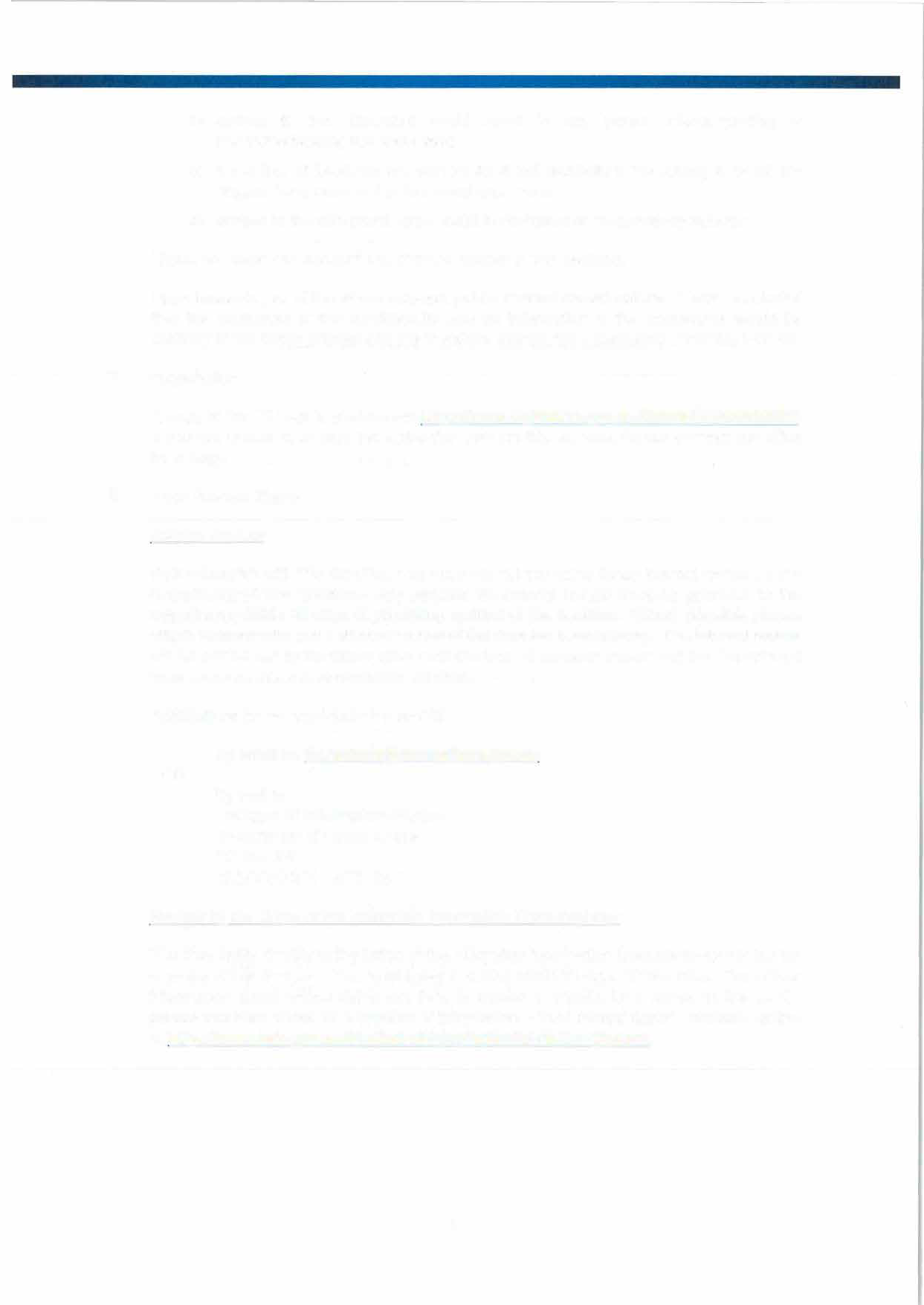
b) access to the document could result in any person misinterpreting or
misunderstanding the document;
c) the author of the document was (or is) of high seniority in the agency to which the
request for access to the document was made;
d) access to the document could result in confusion or unnecessary debate.
I have not taken into account any of those factors in this decision.
Upon balancing all of the above relevant public interest considerations, I have concluded
that the disclosure of the conditionally exempt information in the document would be
contrary to the public interest and it is therefore exempt from disclosure under the FOi Act.
7
Legislation
A copy of the FOi Act is available at https://www.legislation.gov.au/Series/C2004A02562.
If you are unable to access the legislation through this website, please contact our office
for a copy.
8
Your Review Rights
Internal Review
If you disagree with this decision, you have the right to apply for an internal review by the
Department of this decision. Any request for internal review must be provided to the
Department within 30 days of you being notified of the decision. Where possible please
attach reasons why you believe a review of the decision is necessary. The internal review
will be carried out by an officer other than the original decision maker and the Department
must make a review decision within 30 days.
Applications for review should be sent to:
By email to: xxx.xxxxxxx@xxxxxxxxxxx.xxx.xx
OR
By mail to:
Freedom of Information Section
Department of Home Affairs
PO Box 25
BELCONNEN ACT 2617
Review by the Office of the Australian Information Commissioner
You may apply directly to the Office of the Australian Information Commissioner (OAIC) for
a review of this decision. You must apply in writing within 60 days of this notice. For further
information about review rights and how to submit a request for a review to the OAIC,
please see Fact Sheet 12 "Freedom of information - Your review rights", available online
at https://www.oaic.gov.au/freedom-of-information/foi-review-process.
6-
